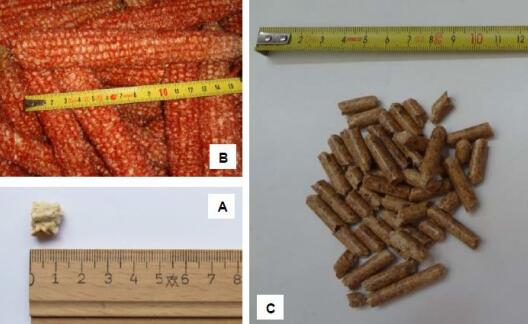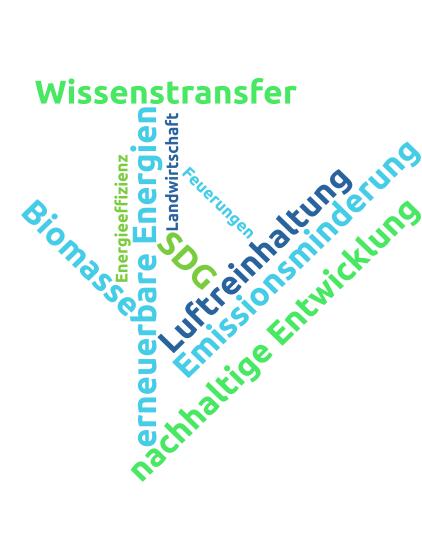Mobilisation of corn cobs as energy source and improvement of heat generators concerning environmental impacts
International project funding
Subject and goals of the project
According to official data, biomass represents about 60 per cent of the renewable energy potential in Serbia. About 1/3 of this biomass potential is currently used, with 95 per cent of it being used for heating buildings, preferably in rural areas. Traditionally, harvested corn cobs are used as fuel.
Currently, small, unsuitable hand-fed furnaces are predominantly used to burn the corn cobs. This and the fact that the harvested cobs are typically burned as a whole result in low firing efficiencies combined with high emissions of air pollutants.
The main objective of the project was to investigate the possibilities for sustainable use of corn cobs as fuel in Serbia. The focus is on increasing combustion efficiency while reducing pollutant emissions. To this end, three different corncob fuels (cobs, pellets and wood chips) and corresponding heating devices were investigated and compared.
Innovation and exemplary nature of the project
A total of three heaters were investigated and optimized with the different corncob fuels. By integrating two-stage combustion, energy efficiency was improved and pollutant emissions were reduced, in some cases very significantly. Nevertheless, not all of the relevant emission limits could be met, which is why further possibilities, especially for reducing particulate emissions, must be investigated in order to provide both an efficient and cost-effective solution. Only then will such equipment become affordable for most end users.
Using the example of corncob pellets, it was also successfully demonstrated that the use of the additive kaolin leads to a significant reduction in the pollutants CO and particulate matter. It can be deduced from the project results that additivated agro-pellets made from corncobs produced in this way can, for example, be mixed with a certain proportion of wood pellets (in the storage tank of the combustion plant) in order to comply with the relevant emission limits.
Special aspects of the project
The central challenge of the project was the further development of Serbian heating appliances in terms of firing technology, taking specific account of fuel properties. The transfer of knowledge from the TU Hamburg-Harburg to its Serbian project partners was essential for the success of the project. This enabled the relevant competences to be further expanded both at the University of Novi Sad and at the company Termoplin Ltd. In addition to Termoplin, other SMEs and small and medium-sized family farms were able to benefit from the project.
The special reference of the project to the Sustainable Development Goals (SDGs) according to the United Nations (UN) Agenda 2030 can be seen with regard to access to affordable, reliable, sustainable and timely energy for all (SDG 7) and taking measures to combat climate change and its effects through the use of renewable energy (SDG 13).
Based on the project results and knowledge transfer, with reference to any agricultural biomass as fuel, the project proposal "Developing combustion technology based on straw gasification to provide energy in an environmentally friendly way and to support industry development" was submitted to the Science Fund of the Republic of Serbia, IDEAS program.
Funding subject: Renewable energy, energy conservation and energy efficiency
Cooperation partners:
- Technical University of Hamburg-Harburg, Institute for Environmental Technology and Energy Economics
- University Novi Sad (Serbien)
- Termoplin Ltd., Mladenovac (Serbien)
Location: Serbia
Funding period: March 2018 to September 2020, Download final report
Project costs: Total volume: 228 184 Euro, DBU funding: 148 688 Euro
DBU-AZ: 33897
Note: Translation of the German version with DeepL
Last updated: 15.11.2021



